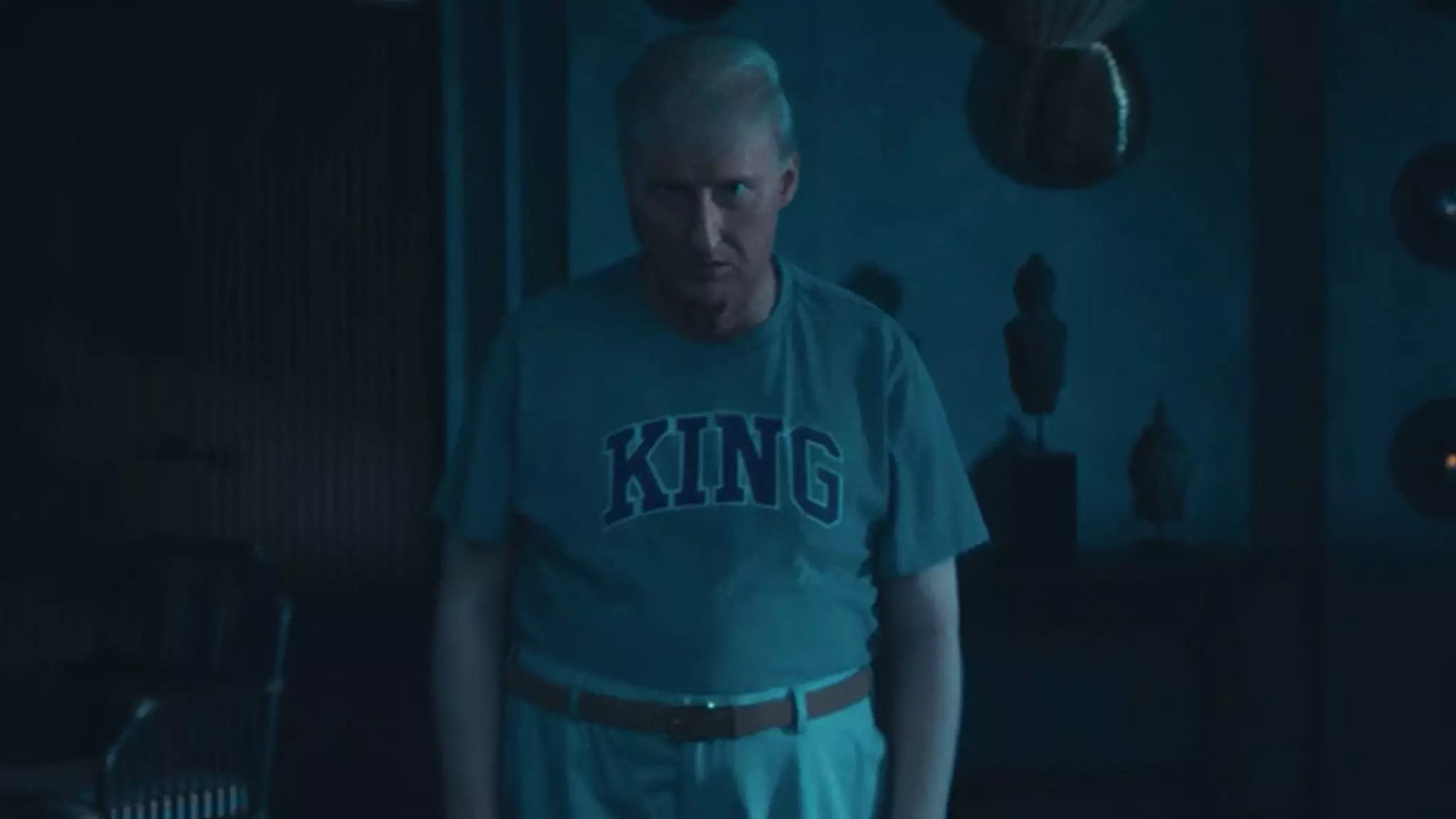Saturday Night Live (SNL) has long been a platform where the sharpest comedians address the follies of American politics. In its most recent episode, the show delivered an audacious parody of the popular HBO series “White Lotus,” entitled “White Potus,” delivering a dizzying blend of satire and social commentary. This sketch scrutinized Donald Trump’s often baffling tariff policies, highlighting the confusion that even at times plagues his staunchest supporters. SNL embraced the absurdities of the political landscape with comedic flair, shedding light on an administration that often seems to defy rationality.
The centerpiece of the sketch was none other than Chloe Fineman, who captured the essence of Melania Trump, albeit with the twang of Parker Posey’s character from “White Lotus.” Fineman’s portrayal underscores a crucial element of SNL’s approach: the art of imitation is not merely for humor; it serves as a mirror reflecting societal and political realities. The Southern accent adds a delightful layer, emphasizing the parody while also calling attention to the character’s cultural setting. This inventive characterization is indicative of the talent at SNL, showcasing how nuanced humor can deliver sharp political critiques.
Trump’s Comedic Dissonance: From Medications to Tariffs
James Austin Johnson’s version of Trump was equally outrageous yet disturbingly relatable. His character observed a dinner that simultaneously teetered on the dramatic and the ridiculous—the Trump family dealing with worldwide recession predictions while trying to maintain an ostensibly normal family dynamic. The juxtaposition was brilliant: What could be more absurd than eating dinner while the world seems to be crumbling around you? This setup cleverly highlights the dissonance of political leaders who prioritize personal concerns over national crises, illustrating a potent message about leadership in tumultuous times.
The humor escalates as Trump hilariously consumes a chicken nugget—his ‘medication’—before gathering around the dinner table, a moment that serves as a stark metaphor for his administration’s seeming prioritization of fast-food culture over substantive political engagement. This critique of Trump’s unique approach to governance, combining trivialities with weighty issues, resonates beyond the realm of sketch comedy, prompting laughter laced with discomfort. The image evokes a bizarre reality where fast food reigns over the complexities of international economics.
Family Dinner: The Absurdity of Political Legacy
The family dynamic is further enhanced by the roles of Donald Trump Jr. and Eric Trump, whose presence augments the sketch’s thematic explorations. Fineman’s Melania’s discontent juxtaposed against the backdrop of a family dinner underlines the personal drama interwoven with political ambition. Her poignant yet tongue-in-cheek lament about America’s prosperity serves as both an indictment and a reflection of the disconnect often seen in political rhetoric versus reality.
This moment is punctuated by Lizzo’s character exclaiming a dramatic drop in her bank account—a nod to the financial anxieties that have permeated American lives, even while political figures seem oblivious to economic hardship. The scene cleverly encapsulates the notion that wealth does not equate to security, and as viewers, we cannot help but reflect on the real consequences of market instability influenced by political decisions.
By the time the sketch reaches its climax, the sheer absurdity has reached unprecedented heights. Johnson’s Trump sleepwalking at the potential act of putting 500% tariffs on China underscores a deeply felt critique; it plays on the notion that these decisions are made in a stupor rather than with strategic intent. The interactions with Putin offer comedic relief while also serving as a reminder of the tangled alliances and rivalries prominent in contemporary politics.
The final shocking moment—a pointed jab at familial and political incest—drew parallels to both the “White Lotus” narrative and the actual social circles within which the Trump family operates. Reference to celebrity relationships and tabloid-esque drama not only heightens the laughter but also resonates with the audience’s awareness of real-world dynamics.
In capturing the intersection of satire and reality, the SNL sketch transcends mere entertainment. Instead, it provokes thought on the absurdity of political theater, challenging viewers to question the narratives constructed by those in power. By enveloping serious themes in mirth, SNL continues to underscore the importance of comedy as a vehicle for societal introspection.

